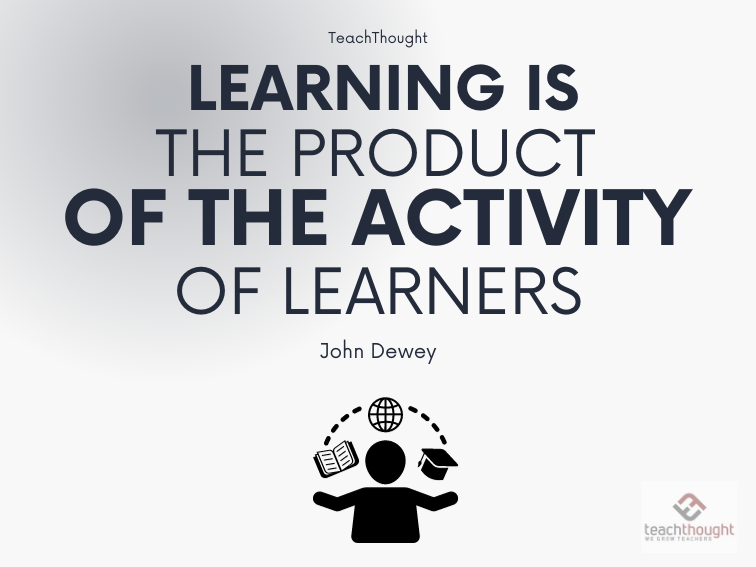15 John Dewey Quotes On Education, Experience, And Teaching
by TeachThought Staff
John Dewey (1859-1952) was an influential American philosopher, psychologist, and educational reformer who worked to help develop the concept of pragmatism, a philosophical perspective emphasizing the practical consequences of ideas.
Who was John Dewey?
Considered one of the founders of modern publication in the United States, his work had a significant impact on education, promoting the idea that learning should be experiential and focused on problem-solving rather than rote memorization.
He believed in the importance of democratic values and advocated for education that fosters active citizenship and social progress. Dewey’s ideas continue to shape modern educational theory and practice, and his contributions extend to various fields, including psychology, ethics, and political philosophy.
In The Pedagogy Of John Dewey, we said that “Dewey believed that learning was socially constructed and that brain-based pedagogy should emphasize active, experiential learning.”
In My Pedagogic Creed by Dewey, we continued that (Dewey) believed that the psychological and social sides are related and that “education cannot be regarded as a compromise between the two.”
Let’s, then, take a look at some of his ideas expressed through simple quotes.

John Dewey Quotes On Education, Experience, And Teaching
“I believe that the only true education comes through the stimulation of the child’s powers by the demands of the social situations in which he finds himself.”
“I believe that this educational process has two sides – one psychological and one sociological; and that neither can be subordinated to the other or neglected without evil results following.”
“Education is not preparation for life; education is life itself.”
“We do not learn from experience… we learn from reflecting on experience.”
“The self is not something ready-made, but something in continuous formation through choice of action.”
“Failure is instructive. The person who really thinks learns quite as much from his failures as from his successes.”
“Give the pupils something to do, not something to learn; and the doing is of such a nature as to demand thinking; learning naturally results.”
“Society not only continues to exist by transmission, by communication, but it may fairly be said to exist in transmission, in communication.”
“Interest in the subject at hand is the best stimulus for learning.”
“The aim of education is to enable individuals to continue their education.”
“Education is a social process; education is growth; education is not a preparation for life but is life itself.”
“If we teach today’s students as we taught yesterday’s, we rob them of tomorrow.”
“Every great advance in science has issued from a new audacity of imagination.”
“Learning is not the product of teaching. Learning is the product of the activity of learners.”
“The only freedom that is of enduring importance is the freedom of intelligence, that is to say, freedom of observation and of judgment.”
“The good man is the man who, no matter how morally unworthy he has been, is moving to become better.”
“The teacher is not in the school to impose certain ideas or to form certain habits in the child, but is there as a member of the community to select the influences which shall affect the child and to assist him in properly responding to these influences.”
“We must also be able to project them into the future to see what their outcome and end will be.”
“Education, therefore, must begin with a psychological insight into the child’s capacities, interests, and habits. It must be controlled at every point by reference to these same considerations. These powers, interests, and habits must be continually interpreted – we must know what they mean. They must be translated into terms of their social equivalents – into terms of what they are capable of in the way of social service.”
John Dewey Quotes: Quotes About Education, Learning, And Life

